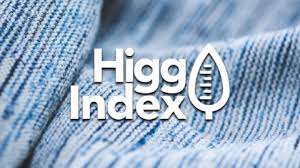August 5, 2020 Mohd Shafi
The Sustainable Apparel Coalition (SAC) and Higg Co have released a new version of the Higg Materials Sustainability Index (Higg MSI), the leading tool to assess the environmental impact of materials in the apparel, footwear, and textile industry. The Higg MSI can calculate the environmental impacts of millions of possible material manufacturing variations.
Higg MSI empowers brands, retailers, and manufacturers to compare material life-cycle assessment data and make more sustainable design and materials choices. In this new version release, the Higg MSI now offers an enhanced user experience, a new database and updated scoring.
“The release of the updated Higg MSI is a big milestone for the industry because it provides more accurate and detailed information, allowing users to dive more deeply into material assessment,” Amina Razvi, executive director of the SAC, said in a press release. “With increased use and shared data, the Higg MSI will continue to evolve and become even stronger, helping to drive collective action.”
Key updates to the 2020 Higg MSI include: new interface offering an enhanced user experience; migration from a standalone website to the Higg.org platform, alongside other Higg tools; addition of a packaging library, comparisons, and customisation; addition of a trims and components library, comparisons, and customisation; ability to customise transportation distances and modes between processing steps; and new process level loss rates, ensuring material assessments include consideration for process efficiencies.
“We use the Higg MSI to understand and measure the environmental impact of Salomon’s materials, we have already scored more than 800 materials so far,” Céline Mazars, Salomon material manager of Footwear, said. “The final objective is to score our footwear products and be able to give environmental visibility to our end consumer and our B2B clients. In addition, with the Higg MSI, we can communicate about sustainability transparently with our suppliers and collaborate globally to make more sustainable products.”
“The Higg MSI was developed specially for the textile industry through global industry-wide consensus. Before the Higg MSI, no tool in the apparel industry offered common criteria for life-cycle assessments, methodology, and procedures,” Hidenori Terai, general manager, fibers & textiles GR & LI business planning dept, Toray Industries, said in the release.
The Higg MSI captures how the five environmental impacts would change based on different raw material or production process options, such as switching from batch dyeing to continuous dyeing. In this example, users can see that the switch would typically reduce the amount of water and energy used when dyeing a fabric. Higg MSI users can also customise how their companies uniquely produce materials and use Higg MSI data to help them make more sustainable choices.

